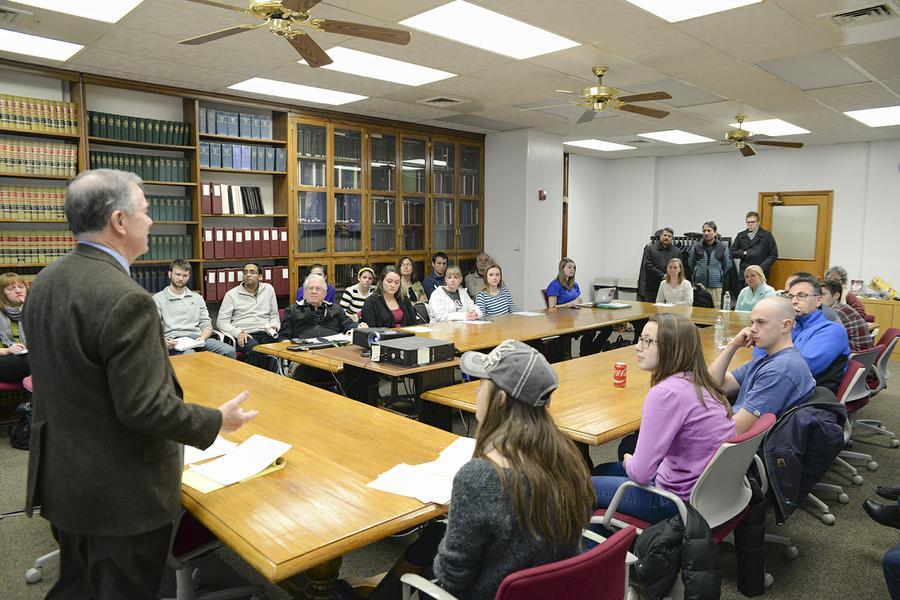
Ending world hunger and how students and university leaders can become more involved in the process were the main points in Chancellor Emeritus Brady Deaton’s message at a student-hosted event Monday evening at Memorial Union.
Deaton said he has been involved with Presidents United to Solve Hunger (PUSH), an organization dedicated to uniting universities in fighting hunger and malnutrition, for a little over a year. He said motivating more students to become involved and mobilizing more universities worldwide are vital to the cause.
“One of the goals of the future is to find ways to tie together various types of universities … to achieve a more in-depth sort of program,” Deaton said.
These programs involve public dialogue and education about the issue of hunger and malnutrition worldwide, which will help change people’s mindset toward the current global need, he said.
Many students are already contributing to the cause on campus and elsewhere, said sophomore Maria Kalaitzandonakes, president of the International Association of Students in Agriculture and related Sciences (IAAS), which hosted the event. Kalaitzandonakes said she represented MU at the [Universities Fighting World Hunger conference in Canada on Feb. 20](http://www.uoguelph.ca/worldhunger/).
“There were representatives from all over the country and all around the world,” she said. “There were speakers from governmental organizations, non-governmental organizations, aid groups, academia, all sorts of things. They all had these amazing ideas with all this passion and it was inspiring.”
Kalaitzandonakes said she believes most people do not truly understand hunger, and that her main goal is to help journalism students learn how to accurately report on the subject.
“We have the number one journalism school in the country right now … So we’re thinking we could host a small weekend (during which) we would have speakers of different issues about hunger, science and technology and have people talk to these young students,” she said.
Deaton said he will be working on MU’s campus to involve more undergraduate students in addressing these issues through their teaching, research and outreach efforts. [Since retiring as chancellor in December 2013](https://www.themaneater.com/stories/2013/11/13/deaton-departs/), Deaton has headed the [Brady and Anne Deaton Institute for University Leadership and International Development](https://www.themaneater.com/stories/2014/2/19/deaton-institute-hopes-collaborate-mu-internationa/).
The institute has focused on addressing food security and the socioeconomic needs of developing countries with the aim of eliminating extreme poverty, he said. The institute is currently working with IAAS to assist economic recovery in countries affected by ebola by supporting non-governmental organizations that operate on a small community scale.
Deaton said the institute and IAAS are also organizing a leadership summit to discuss international aid programs and the interdisciplinary approaches to development.
The institute’s future goals include developing new approaches to higher education leadership with MU’s international partners, placing an emphasis on handheld devices in developing countries and by helping these countries solve their own problems with MU’s help, Deaton said.
IAAS will hold a meeting April 13 to update campus on its progress since February, Deaton said.